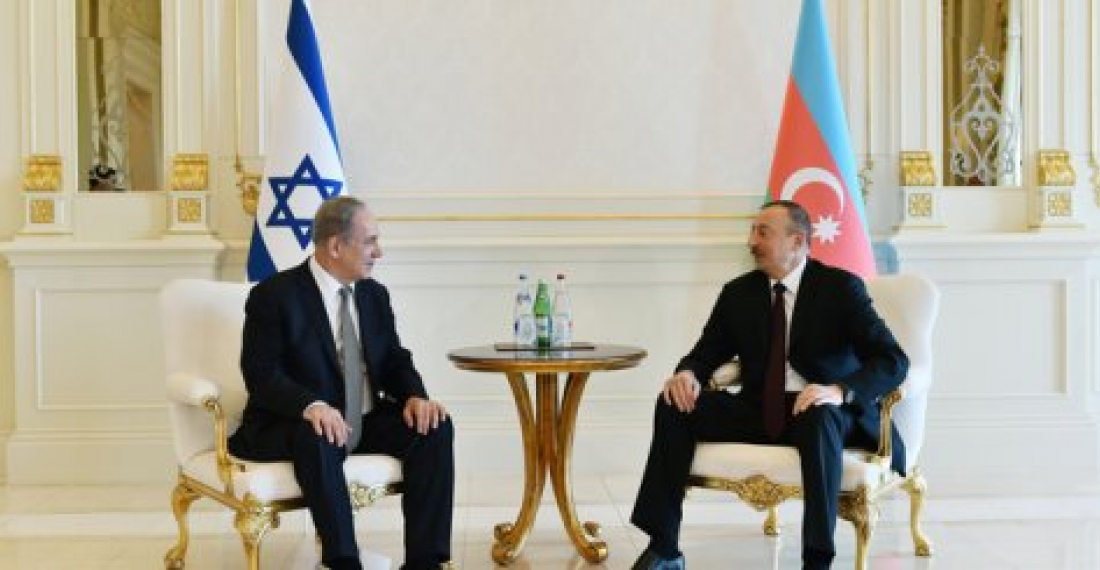Israeli prime minister Benjamin Netanyahu arrived in Baku on Tuesday for a one-day official visit. Shortly after his arrival Netanyahu had a tete-a-tete meeting with the president of Azerbaijan, Ilham Aliev.
President Aliev and his wife Mehriban Alieva earlier greeted Prime Minister Benjamin Netanyahu and his wife Sara Netanyahu at the President's official residence
Speaking at Ben Gurion Airport Tuesday morning before flying to Azerbaijan and Kazakhstan, the Israeli Premier highlighted the fact that this was a visit to two important muslim countries, the Jerusalem Post reported.
Both Azerbaijan and Kazakhstan want to strengthen their ties with Israel, Netanyahu said, and "following the strengthening of our relations with powers in Asia, and countries in Africa and Latin America, now comes the connection with important countries in the Muslim world."
Not only is Israel not isolated, but it is being courted by many countries around the world, including Muslim states in Central Asia, noted Netanyahu.
The premier recalled that when he visited Azerbaijan 20 years ago he met with the current president's father, then President Heydar Aliev.
This visit, he added, signifies both "continuity and an important breakthrough."
source: commonspace.eu with Jerusalem Post and APA, Baku.







